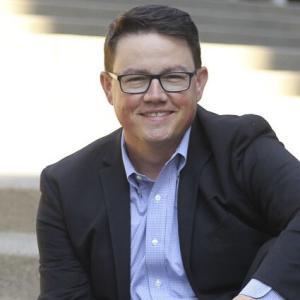
Chris Corry of the Washington Policy Center shares the formal feedback provided to the Washington State Department of Revenue
Chris Corry
Washington Policy Center
As we have been covering, the Washington State Department of Revenue has released draft rules for implementing Washington’s Capital Gains (Income) Excise Tax. As noted by the center and others, there are a number of issues with these proposed rules. One of the groups who spoke at the initial public hearing was the Washington Society of CPAs. They have provided formal feedback to DOR.

Capital loss carryforwards
A major issue for those being subject to the tax is the exclusion of capital loss carryforwards. Per RCW 82.87.040 (3):
“(3) If an individual’s Washington capital gains are less than zero for a taxable year, no tax is due under this section and no such amount is allowed as a carryover for use in the calculation of that individual’s adjusted capital gain, as defined in RCW 82.87.020(1), for any taxable year. To the extent that a loss carryforward is included in the calculation of an individual’s federal net long-term capital gain and that loss carryforward is directly attributable to losses from sales or exchanges allocated to this state under RCW 82.87.100, the loss carryforward is included in the calculation of that individual’s adjusted capital gain for the purposes of this chapter. An individual may not include any losses carried back for federal income tax purposes in the calculation of that individual’s adjusted capital gain for any taxable year.”
However, in the draft rules proposed by DOR, WSCPA has noted that they have omitted the allowable capital loss carryover from the statute. They are correct in stating the draft rules should be revised to include back that provision and clarify with examples on how this will be applied to different situations.
Charitable donation deductions
Another issue noted by WSCPA is that the draft rules have added complexities for allowable deductions from the Washington tax. The statute does allow for tax deductions for donations to qualified organizations that are principally directed or managed within the state of Washington.
However, the draft rules state, “Principally directed or managed within the state of Washington” means that an organization’s high-level officers primarily direct, control, and coordinate the organization’s activities in Washington”.
WSCPA correctly notes that the RCW has a two-part test. The first is a qualified organization (meets IRS code) and must be “principally directed or managed within the state of Washington. It does not require them to “direct, control and coordinate”. This creates more challenges to deduct a charitable contribution than is required by the statute.
They provide examples of how this draft rule would affect some organizations based in Washington state:
“Some large universities and nonprofits located entirely in the state of Washington, would likely not qualify under the draft rules as currently written, because their “high-level officers” are not directing, controlling and coordinating activities in Washington, rather they have key staff persons who fulfill those roles.”
The draft rules should create additional hurdles beyond what the authorizing RCW states.
Other items of note
There are some additional concerns brought by WSCPA. One such issue is around extensions and penalties. This tax is new for Washingtonians and was upheld by the Washington State Supreme Court just before the filing deadline. Additionally, many will not know if they have a qualifying gain with extensions. WSCPA is urging the DOR to waive penalties for this initial year. They note that there are still substantive issues noted in the draft rules that have not been finalized.
WSCPA’s feedback covers additional topics. You can find their feedback here. WSCPA Feedback to DOR
Chris Corry is the director of the Center for Government Reform at the Washington Policy Center. He is also a member of the Washington State House of Representatives.
Also read:
- POLL: Why did voters reject all three tax proposals in the April 22 special election?Clark County voters rejected all three tax measures on the April 22 special election ballot, prompting questions about trust, affordability, and communication.
- Opinion: The war on parental rightsNancy Churchill argues that Olympia lawmakers are undermining voter-approved parental rights by rewriting key legislation and silencing dissent.
- Opinion: An Earth Day Lesson – Last year’s biggest environmental victories came from free marketsTodd Myers argues that Earth Day should highlight free-market solutions and grassroots innovation as more effective tools for environmental stewardship than top-down mandates.
- Opinion: Time to limit emergency clauses and give voters a choiceTodd Myers urges the governor to remove emergency clauses from bills that appear intended to block voter input rather than address real emergencies.
- Letter: C-TRAN Board improper meeting conductCamas resident Rick Vermeers criticizes the C-TRAN Board for misusing parliamentary procedure during a controversial vote on light rail.










